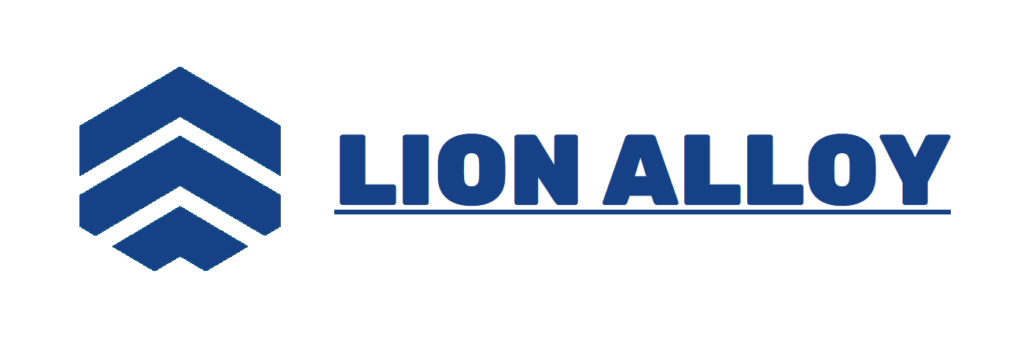UDIMET® Alloy 720 Product Introduction
UDIMET® alloy 720 is a high-strength nickel-based superalloy known for its excellent mechanical properties and resistance to high-temperature environments. This article provides a comprehensive introduction to UDIMET® alloy 720, covering its chemical composition, mechanical properties, performance at different temperatures, industry applications, shapes and sizes, production standards, welding and processing capabilities, advantages and disadvantages, and a comparison with similar alloys.
Chemical Composition
UDIMET® alloy 720 is primarily composed of nickel with significant additions of cobalt, chromium, iron, and other elements to enhance its mechanical and thermal properties:
| Element | Composition (%) |
|---|---|
| Nickel (Ni) | 59.0 – 63.0 |
| Cobalt (Co) | 17.0 – 21.0 |
| Chromium (Cr) | 15.0 – 17.0 |
| Iron (Fe) | 3.0 – 5.0 |
| Molybdenum (Mo) | 1.5 – 2.5 |
| Tungsten (W) | 0.5 – 1.5 |
| Aluminum (Al) | 0.5 – 1.5 |
| Titanium (Ti) | 0.5 – 1.5 |
| Boron (B) | 0.003 – 0.01 |
| Carbon (C) | 0.08 max |
Mechanical Properties
UDIMET® alloy 720 exhibits excellent mechanical properties suitable for high-temperature applications:
| Property | Value |
|---|---|
| Tensile Strength, ksi (MPa) | 170 – 190 (1172 – 1310) |
| Yield Strength (0.2% offset), ksi (MPa) | 120 – 140 (827 – 965) |
| Elongation (% in 2 inches) | 15 – 20 |
| Hardness, Rockwell C (HRC) | 35 – 40 |
Performance Characteristics
UDIMET® alloy 720 offers several performance advantages:
- High-Temperature Strength: Retains excellent mechanical properties at elevated temperatures up to 1000°C (1832°F).
- Oxidation Resistance: Provides good resistance to oxidation and high-temperature corrosion in various environments.
- Creep Resistance: Exhibits high creep resistance, making it suitable for applications under constant stress at high temperatures.
Industry Applications
UDIMET® alloy 720 is used in various industries requiring high performance under extreme conditions:
| Industry Sector | Applications |
|---|---|
| Aerospace | Gas turbine components such as turbine blades, vanes, and discs. |
| Power Generation | Gas and steam turbine components, combustion chambers, and heat exchangers. |
| Chemical Processing | Reactor vessels, heat exchangers, and pipes handling corrosive chemicals at high temperatures. |
Shapes and Sizes
UDIMET® alloy 720 is available in various forms and sizes to meet specific application requirements:
- Forms: Sheets, plates, bars, forgings, and wire.
- Sizes: Thickness ranging from 0.5 mm to 100 mm for plates, and diameter ranging from 1 mm to 300 mm for round bars.
Production Standards
UDIMET® alloy 720 conforms to international production standards ensuring quality and reliability:
| Product Form | Shapes Available | Sizes Available | Production Standards |
|---|---|---|---|
| Plates/Sheets | Sheets, Plates | Thickness: 0.5 mm – 100 mm | ASTM B637, AMS 5764 |
| Bars/Rods | Round bars, Square bars | Diameter: 1 mm – 300 mm | ASTM B637, AMS 5764 |
| Forgings | Blocks, Discs, Rings | Size: Customized | ASTM B637, AMS 5764 |
Welding and Processing
UDIMET® alloy 720 offers good weldability and processing characteristics:
- Welding: Can be welded using methods such as TIG, MIG, and resistance welding. Preheating and post-weld heat treatment may be required to maintain properties.
- Machinability: Generally machined in the solution-annealed condition using carbide tools and appropriate cutting fluids.
Advantages and Disadvantages
| Aspect | Details |
|---|---|
| Advantages | High strength and toughness at elevated temperatures, excellent oxidation resistance, good creep resistance, and availability in various forms and sizes. |
| Disadvantages | Higher cost compared to standard nickel alloys, requires specialized processing and handling due to its high strength and alloying elements. |
Comparison with Similar Alloys
UDIMET® alloy 720 (UNS N07200) is often compared with other high-strength nickel-based superalloys such as UDIMET® alloy 718 and UDIMET® alloy 625. Here’s a brief comparison:
| Alloy Type/Property | UDIMET® alloy 720 | UDIMET® alloy 718 | UDIMET® alloy 625 |
|---|---|---|---|
| Chemical Composition | High nickel, cobalt, chromium, with additional alloying elements for high-temperature strength. | High nickel, chromium, and niobium with smaller additions of aluminum and titanium. | High nickel, chromium, and molybdenum with niobium and tantalum for strength and corrosion resistance. |
| Mechanical Properties | Higher tensile and yield strength, superior creep resistance at high temperatures. | Lower tensile and yield strength compared to UDIMET® alloy 720, good toughness and fatigue resistance. | Lower tensile and yield strength, excellent fatigue resistance, and good corrosion resistance in various environments. |
| Applications | Gas turbines, aerospace components requiring high-temperature strength and oxidation resistance. | Aerospace components, high-temperature bolts, and fasteners. | Chemical processing equipment, marine applications, and aerospace components requiring corrosion resistance. |
This detailed article introduces UDIMET® alloy 720, highlighting its chemical composition, mechanical properties, performance characteristics, industry applications, available forms and sizes, production standards, welding and processing capabilities, as well as advantages, disadvantages, and a comparison with similar alloys. Engineers and professionals seeking a robust, high-strength superalloy for demanding applications in aerospace, power generation, and chemical processing industries will find UDIMET® alloy 720 suitable for use under extreme conditions.


